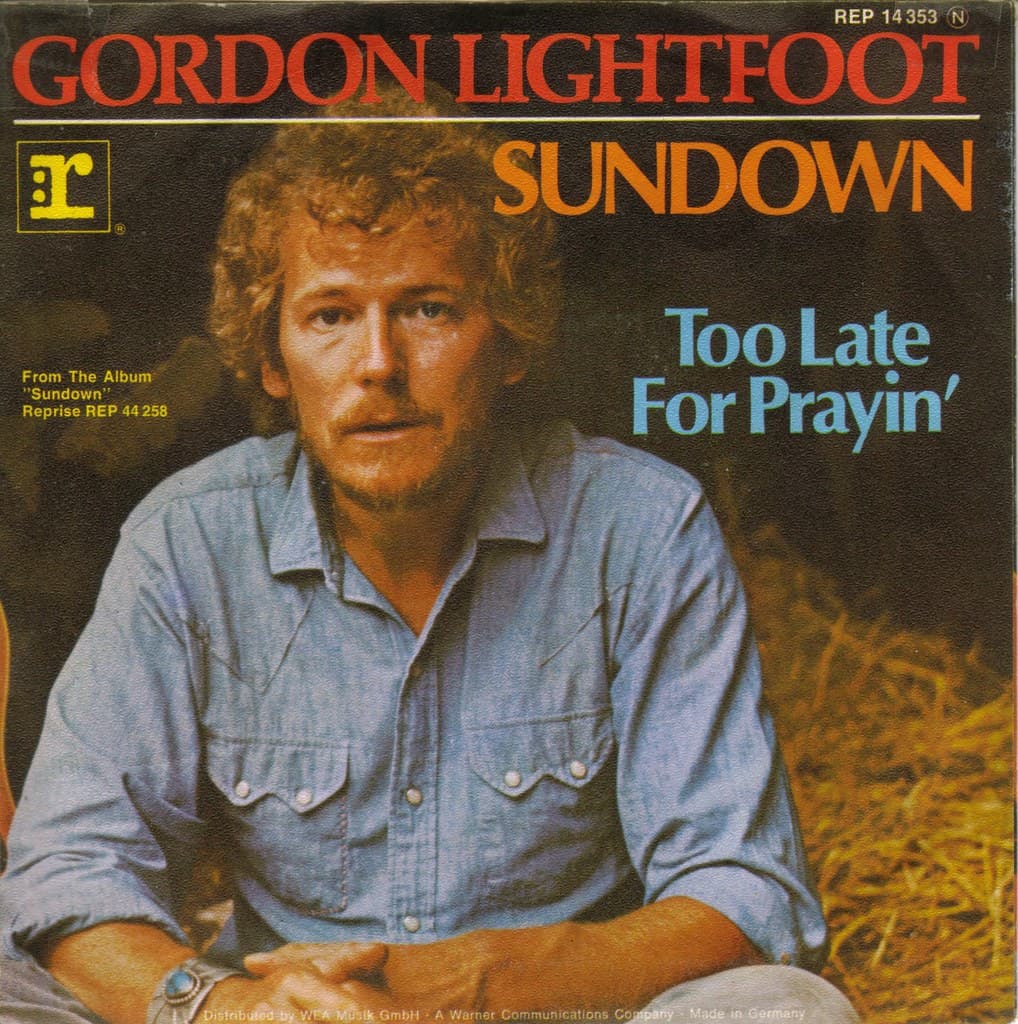
“Sundown” – Gordon Lightfoot’s Brooding Masterpiece of Suspicion and Heartache
“Sundown,” released in 1974, stands as one of Gordon Lightfoot’s most recognizable and evocative songs. A folk-rock gem tinged with melancholy, it became his first—and only—song to reach No. 1 on the Billboard Hot 100 in the U.S. and topped the Adult Contemporary chart as well. With its haunting melody and introspective lyrics, “Sundown” captured the essence of emotional tension, jealousy, and personal turmoil, cementing Lightfoot’s status as one of the finest singer-songwriters of the 1970s.
The song opens with a simple yet hypnotic acoustic guitar riff, setting a laid-back yet uneasy tone. Lightfoot’s vocals, soft but weighted with emotion, perfectly convey the sense of quiet dread that runs through the lyrics. “Sundown” is not just a story of lost love or regret—it’s a tale filled with suspicion, longing, and the kind of emotional uncertainty that lingers in the shadows of a troubled relationship. The steady beat of the bass and drums anchors the song, giving it a subtle groove, while the occasional slide guitar adds a touch of country flair, making it a quintessential example of folk-rock with pop sensibilities.
Lyrically, “Sundown” reflects the darker side of relationships, with Lightfoot’s words hinting at jealousy and mistrust. Lines like “Sometimes I think it’s a sin / When I feel like I’m winning, when I’m losing again” capture the emotional confusion of someone who is both drawn to and wary of the person they love. The phrase “sundown” itself becomes a metaphor for an impending sense of doom, as if the nightfall brings with it unavoidable truths and painful realizations. There is a palpable sense of vulnerability, as the narrator seems caught between desire and doubt, unable to fully trust the person he cares for.
“Sundown” is widely believed to have been inspired by Lightfoot’s troubled relationship with Cathy Smith, a woman with whom he was romantically involved at the time. Smith, a free-spirited and controversial figure, would later gain notoriety for her connection to John Belushi’s death. Although Lightfoot has remained somewhat elusive about the specifics, the song’s lyrics reflect the emotional turmoil that marked their time together. This personal connection adds another layer of meaning to the song, making it feel even more intimate and raw.
The track’s production is understated but impeccable. Unlike some of the more elaborate arrangements of the era, Lightfoot keeps things relatively simple, allowing the strength of the melody and the weight of the lyrics to shine through. The song’s folk roots are evident, but the subtle rock and country influences give it a unique edge that helped it appeal to a broad audience. This blend of genres made “Sundown” a crossover hit, appealing to both folk purists and fans of mainstream pop and rock.
Upon its release, “Sundown” became an instant success. It spent one week at No. 1 on the Billboard Hot 100 and enjoyed a long stay on the charts, becoming one of the biggest hits of 1974. The song’s popularity extended beyond the U.S., performing well in Canada, where Lightfoot was already a national treasure, and other international markets. Its success marked a high point in Gordon Lightfoot’s career, solidifying his reputation not only as a skilled songwriter but also as an artist capable of crafting deeply personal music that resonated with a wide audience.
“Sundown” has stood the test of time, continuing to attract listeners with its timeless themes and haunting sound. Its blend of folk introspection and pop accessibility makes it a perfect example of the kind of music that defined the singer-songwriter era of the 1970s. Lightfoot’s ability to convey complex emotions with simplicity and grace is on full display here, and it’s one of the reasons the song remains a beloved classic.
At its heart, “Sundown” is about the human experience—about love, insecurity, and the difficult emotions that arise when trust falters. It captures a moment in time, both personally for Lightfoot and culturally for the era, when people were beginning to explore the complexities of relationships in a more open and honest way. The song’s brooding atmosphere, combined with its infectious melody, ensures that it will remain a staple of folk-rock playlists for generations to come.
Today, “Sundown” continues to resonate, not only because of its beautiful arrangement and poignant lyrics but also because of the universal themes it explores. In moments of doubt or reflection, the song serves as a reminder that love—like the setting sun—can be both beautiful and unsettling. For Gordon Lightfoot, “Sundown” represents one of his finest achievements, a song that transcends time and genre to speak directly to the listener’s heart.